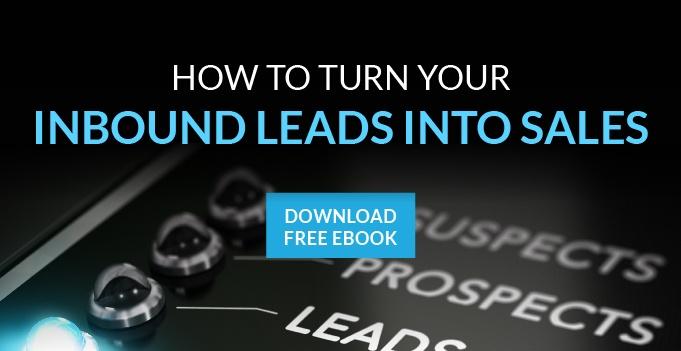 If you’ve been reading this blog, you know that we’re huge advocates of inbound marketing as a way to drive people to your website through the use of relevant content. If you’ve begun your inbound campaign, we hope that you’ve begun to see an increase in traffic to your site. But of course there’s more to marketing than just getting visitors to your website. Your real goal is to convert those leads into sales. And, if you’ve studied marketing at all, you know that the percentage of leads that actually convert is quite low, roughly 5%. While inbound leads are relatively inexpensive (compared to leads generated through old-school methods), you’ve put considerable effort and expense into obtaining those leads, and you don’t want to lose any more of those than you absolutely need to.
If you’ve been reading this blog, you know that we’re huge advocates of inbound marketing as a way to drive people to your website through the use of relevant content. If you’ve begun your inbound campaign, we hope that you’ve begun to see an increase in traffic to your site. But of course there’s more to marketing than just getting visitors to your website. Your real goal is to convert those leads into sales. And, if you’ve studied marketing at all, you know that the percentage of leads that actually convert is quite low, roughly 5%. While inbound leads are relatively inexpensive (compared to leads generated through old-school methods), you’ve put considerable effort and expense into obtaining those leads, and you don’t want to lose any more of those than you absolutely need to.
Content, content, content.
Having been brought up as a salesperson in the world of real estate financing, I frequently heard veterans talk about the 3 most important factors in determining the value of a property, which are referred to as the “Three L’s”: Location, location, and location. I’d like to put forth that inbound marketing can be said to depend most on the Three C’s (though this term has been used differently in some circles): Content, content, and content.
You’ve used content to attract visitors to your site, and it’s a great method for that. But that’s only step one, and it can be a long walk down the “buyer’s journey”, with a lot of places where your leads can fall out before they convert to sales. You’ll need to keep those leads engaged, and the best way to do that is by giving them more high quality content.
Use Content to Remove Doubts.
A lot of fallout of leads occurs in the early stages of the buyer’s journey. Buyers are generally concerned with questions about whether your offerings will really solve their problems or fulfill their needs. You can assuage these concerns with content that addresses their questions, like case studies from satisfied customers with whom they can identify.
Keywords are the key.
Potential buyers of your goods/services are going to be doing web searches, and it is the intelligent use of keywords that will get your content to rank high in those searches, and attract them to your site. It’s important to use the optimal keywords, which will be in the most relevant searches by those who are likely to buy your products. Sure you can cast a wider net using more generic keywords, but that will result in a lot of website visitors who may not be interested in what you’re selling. Content with more focused keywords may attract fewer inbound leads, but a higher percentage of those will be the type that are more likely to convert into sales.


Comments